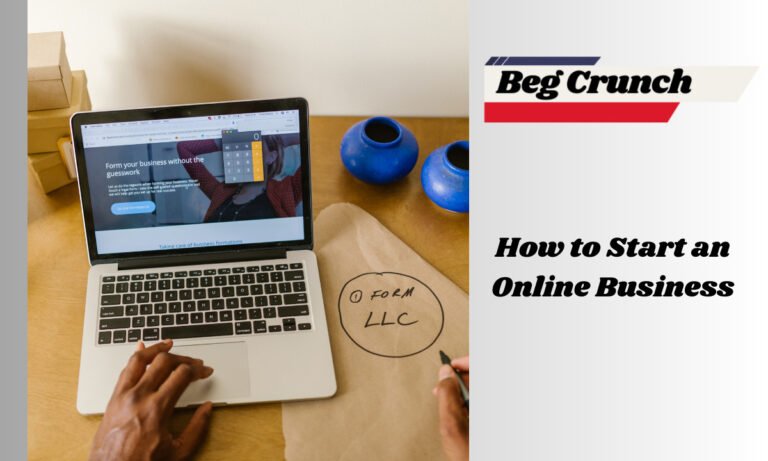How to Start a Business: A Definitive Guide
A lucrative and exciting endeavor is starting a business. Whether you have a groundbreaking idea or a passion for entrepreneurship, leaping into the domain of business ownership requires careful planning and execution. This comprehensive guide will walk you through the essential steps to successfully launch your own business. From refining your business idea to creating a solid business plan, we’ll cover everything you need to know to get started.
How to Start a Business: A Definitive Guide
1. Refining Your Business Idea
The first step in starting a business is to develop a clear and viable business idea. This is the foundation on which your entire venture will be built. Here are some tips to help you refine your business idea:
Identify Your Passion and Expertise: Consider what you are passionate about and what skills or knowledge you possess. Starting a business based on your passions and expertise can increase your chances of success.
Market Research: Conduct thorough market research to identify gaps in the market and understand your target audience. This will help you tailor your products or services to meet customer needs.
Unique Selling Proposition (USP): Determine what sets your business apart from the competition. Your USP should highlight the unique value your business offers to customers.
2. Creating a Business Plan
A well-thought-out business plan is crucial for the success of any startup. It serves as a roadmap for your business and helps you stay focused on your goals. What should be in your business strategy is listed below.
Executive Summary: Provide an overview of your business idea, mission, and vision.
Company Description: Describe your company, its history (if any), and the products or services you will offer.
Analyze your target market, rivals, and current industry trends.
Organization and Management: Outline your business’s organizational structure and key team members.
Product or Service Line: Describe your offerings and how they address customer needs.
Marketing and Sales Strategies: Detail your marketing and sales plans to attract customers.
Funding Request: If you need external funding, specify how much you require and how you will use it.
Financial Projections: Provide financial forecasts, including income statements, cash flow projections, and balance sheets.
3. Setting Up Your Business
Once your business plan is in place, it’s time to set up your business. This involves several essential steps:
Legal Structure: Decide on the legal structure of your business, such as sole proprietorship, partnership, LLC, or corporation. Each structure has its implications for taxes, liability, and ownership.
Register Your Business: Register your business name with the appropriate authorities and obtain any necessary licenses or permits.
Create a Business Bank Account: Create a separate business bank account to handle your personal and business funds.
Set Up Business Operations: Establish a physical location for your business, if applicable, and acquire any necessary equipment or inventory.
4. Developing Your Product or Service
With the groundwork laid, it’s time to focus on developing your product or service. Depending on your business, this step may involve:
Prototyping and Testing: For product-based businesses, create prototypes and conduct testing to ensure quality and functionality.
Quality Control: Implement processes to maintain consistent quality in your offerings.
Service Processes: For service-based businesses, establish clear service delivery processes.
Branding and Packaging: Develop a compelling brand identity and design packaging, if relevant to your business.
5. Marketing and Launching Your Business
A successful launch requires effective marketing strategies to generate interest and attract customers. Consider the following marketing techniques:
Online Presence: Create a business website and create a profile on social media sites. To increase online exposure, use search engine optimisation (SEO) strategies.
Content Marketing: Create valuable content, such as blog posts and videos, to showcase your expertise and attract potential customers.
Networking: Attend industry events, join business groups, and network with potential clients and partners.
Offer Promotions: Introduce introductory offers or discounts to entice customers to try your products or services.
6. Managing and Growing Your Business
Congratulations! Your business is up and running, but the journey doesn’t end here. Successful entrepreneurs continuously manage and grow their businesses. Here’s what you can do:
Customer Service: Prioritize excellent customer service to build loyal relationships and receive positive reviews.
Monitor Finances: Regularly review your financial statements and make adjustments as needed.
Continuous Innovation: Stay abreast of industry trends and continuously improve your products or services.
Expand Your Reach: Consider expanding to new markets or launching additional product lines.
FAQs
Do I need a business plan to start a business?
A well-structured business plan is essential for guiding your business and securing funding from investors or lenders.
What legal structure is best for my business?
The best legal structure depends on factors like liability, taxation, and ownership. Consult with a legal professional to determine the right fit for your business.
How much funding do I need to start a business?
The required funding varies depending on the type of business and its scale. Prepare a detailed budget in your business plan to estimate the needed funds.
How much time does it take to launch a company?
The timeframe for starting a business can vary. It may take several weeks to months, depending on the complexity of your business and the required legal processes.
Conclusion
Starting a business can be a life-changing endeavor, filled with challenges and rewards. You can increase your chances of success by refining your business idea, creating a solid business plan, and executing effective marketing strategies. Remember that entrepreneurship is a journey of continuous learning and adaptation. Stay committed, be open to feedback, and embrace innovation as you build and grow your business. You may realize your entrepreneurial aspirations if you are persistent and determined.
In conclusion, starting a business is not just about turning an idea into reality; it’s about building a foundation for long-term success in the ever-changing business landscape. So, take the leap, embark on this exciting journey, and see your business flourish!








